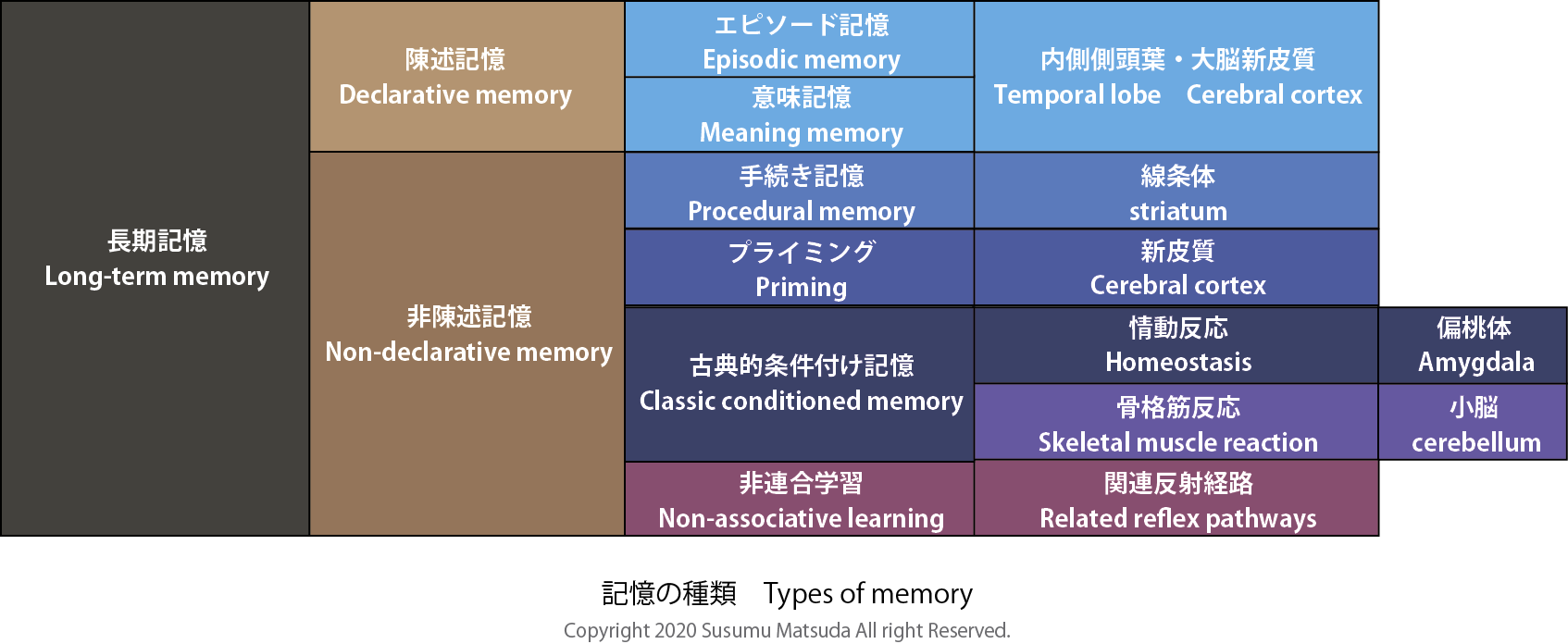I will talk about the types of memory in psychology. Memories include sensory memory, short-term memory, and long-term memory. This memory classification is a memory classified according to the retention time. The shortest memory is the sensory memory that is momentarily held in the sensory organs by an external stimulus. Memories are retained for a short period of time only when attention is paid to that sensation. Short-term memory is a primary memory that can be retained for only a few tens of seconds and has a limited amount of storage. Information stored in short-term memory is organized and sorted during sleep and stably retained as long-term memory. For long-term memory, there is no limit on the storage capacity.

Long-term memory includes declarative memory and non-declarative memory. Declarative memory includes memory called episodic memory and episodic memory that is memorized with emotions. Even in non-declarative memory, it is memorized in the amygdala and cerebellum by a reaction called conditioned memory. The memory needed to improve susceptibility to disasters is emotional memory. It is known that memories accompanied by emotions are easily memorized, and it is known that the memory promoting effect is high when the arousal level is high. Therefore, the emotional and highly aroused sensation of the RiMM’s disaster sensation increases sensitivity and makes it easier to remember the state.